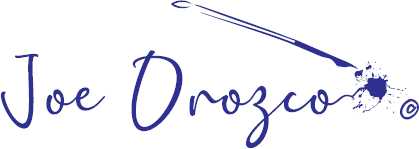Choosing the Budget Strategy that Makes Sense for You
In the previous post we covered the plans that should come before setting a personal budget. You should know why you want a budget. You should know how much money you’re bringing in and be realistic about your spending habits. Now let’s turn our attention to a handful of budget strategies that could fit your personality.
A Few Budget Strategy Options
- Line Item Budget: In this budget, you’re going to divide your expenditures into categories, which might include: housing, utilities, groceries, and transportation, etc. The idea is that you set a spending limit per category. Using a spreadsheet is a great way to keep track of said categories.
- Proportional Budget: In this budget you’re going to collapse your spending categories into three main buckets: needs, wants, and savings. Your needs will likely include your core essentials. Your wants will include your leisure spending, and the savings are self-explanatory.
- Envelope Budget: This is a cash-based budget. You can either adopt the line item budget or proportional budget strategy, but instead of spending using a debit or credit card, you spend down the cash in each designated envelope. Once you’re out of money for the month, you have nothing left to spend for that category.
- Zero-Sum Budget: In this budget, you will take the amount of money you bring home every month and assign every dollar a purpose. In the previous budgets, it’s entirely possible you could fall below the threshold you set for each category or proportion. In a perfect world, you would take that excess and sweep it into savings. The zero-sum budget, however, definitively says: This is exactly where each cent will go.
- Pay Yourself Budget: With this budget strategy, you settle on a realistic amount you can stand to save every month. You move that into savings, and the rest of your money is left to cover both your essential and frivolous spending. It’s okay to call it “frivolous,” because you already took care of setting aside money and can do with the balance whatever your heart desires.
Regardless of the strategy you choose, it needs to be a strategy that fits naturally with your personality. In my case, I know enough about my discipline to understand I do not have the patience to sit with a spreadsheet and track every expense. The envelope budget would have required me to visit a bank, not the most appealing idea for someone who values efficiency. There was also the matter of cash versus credit spending. Cash is harder to track on a statement sheet, which therefore makes it harder to study spending patterns. By paying myself first, the medium doesn’t matter.
So, here’s what I do. I take my first check of the month, subtract what I know I want to set aside for the month and transfer this amount to a money market account at a bank separate from my primary bank. I try to set aside the same amount month to month so that I get used to living within a certain range. I keep the money market account at a different bank to make it harder for me to lean on those funds. For the moment, this money market account holds what will become my emergency fund. Once I have reached my intended target for that emergency fund, instead of putting money into the money market, I will invest my monthly savings into a blend of stocks and bonds. This will comprise my investment strategy toward a down payment on a home I may want to buy in five years or so. After transferring out money, I am usually left with the amount I will rely on for groceries and whatever miscellaneous thing I think I want on any given month.
The second check is largely swallowed by rent and utilities. There’s not much else to say about this except I pay for the convenience of the area I choose to call home.
If there is a third check on my biweekly pay schedule, I am most likely to transfer that into the money market or investment fund. It’s easy enough to do this, because psychologically, I have already trained myself to live on two checks per month.
At the end of the month, there is always money left over after paying myself and dealing with normal expenses. I’m not saying I never come close to a 0 balance, but so far I’ve managed to avoid overdrafts. I am mostly likely to take that remainder and move it into my primary savings account. It won’t have the greatest interest rate, but this is money I am slowly building up for short-term expenses and the occasional splurge.
To put this in better context, let’s say I get a check for $500 every two weeks. I’ll take the first $500 of the month and transfer $200 of this into a money market. I will then rely on the remaining $300 to buy groceries, eat out, whatever. When I get the second $500 of the month, I will spend $400 on rent and utilities. The remaining $100 can also go toward whatever miscellaneous spending I have for that month. If, at the end of the month, I have $50 left, I’ll transfer it into my primary savings account. If there happens to be a third check for $500, this will go into the money market.
A Few Considerations
Conventional advice says you should set auto pay for things like your rent, mortgage, credit cards, and utilities. For the foreseeable future, I have no intention of following that advice. I like to comb through my statements. There’s a lesson to be learned from how many times I visited Starbucks. Just because I can spend my balance however I want does not mean I can’t do something about improving my spending behavior. I have my moments of cynicism and do not always trust that my bills will be accurate. Also, if I am not on top of my statements, how will I learn about suspicious charges?
It’s important to set time limits. At present, I am slowly saving up for the down payment on a house. I keep going back and forth on the pros and cons of buying a property. Having owned before, I still remember the burden of maintenance costs, but for the time being, I am using that as my long-term motivator. I’m giving myself five years. If, at the end of those five years I decide buying a house is not the wisest decision in the moment, I can either keep saving more toward that goal or decide to shift the money toward another purpose. If you do not set a time limit, you may lose sight of why the budget is needed in the first place.
It’s just as important to keep your budget flexible. You get to pick your own goals, but sometimes life happens. Your needs change. And you know what? That’s alright. A good budget will work with you. A few adjustments should refocus the budget toward your new priorities.
A Word on Budget Tools
If the budget itself should be simple, the way you create the budget should be equally straightforward. If you hate spreadsheets, don’t rely on them to maintain your budget. If you want to rely on a linear format on a piece of paper, go for it. The budget needs to be as painless to track as possible. Other than tracking overall month to month spending, I hate tracking, and that is why I pay myself first.
Of course there is always the technological method. There are likely hundreds of mobile apps that will help you track your spending. Mint is one popular service that is largely designed to help your budget. I have never used Mint, and so I cannot confirm whether or not the rumors are true that the tool suffers from synchronization issues or that the customer service leaves something to be desired.
Personal Capital is another popular service. It will help with budgeting, but its greater strength is the investment component. It’s a great tool to set goals and learn which investment strategies are costing too much in fees. In either case, the services rely on you providing access to your various financial accounts, but both services are well-known for exercising good security practices. Blind consumers may be interested to know Personal Capital is generally accessible, except for the graphs that display your financial performance.
Check with your bank. They may offer money management tools that conveniently sync up with your checking and savings accounts. Why add another service if you don’t have to?
Final Thoughts
Setting a budget and sticking to it is almost like following a diet plan. It’ll force you to make sacrifices, but in the end, it should be a plan that yields rewards you can be proud.
Picking the right budget strategy is equally important. Don’t feel compelled to pick a certain style just because it looks more diligent or responsible. You need to pick the strategy that makes sense for your natural tendencies. I’ve chosen to pay myself first, because it makes sense for my personality type. For the more dedicated among you, a line item budget will be a more perfect fit.
If you find an online tool that makes budgeting easier, by all means take advantage of it. Don’t make your life more complicated than it needs to be though. The less hurdles you remove from following a budget, the more apt you are to use it and as a result, the more savings you will have to show for it.
If I can answer any questions in the meantime, let me know in the comments. Or, if you want to add to or dispute any of the advice here, by all means use the comments to do so.



